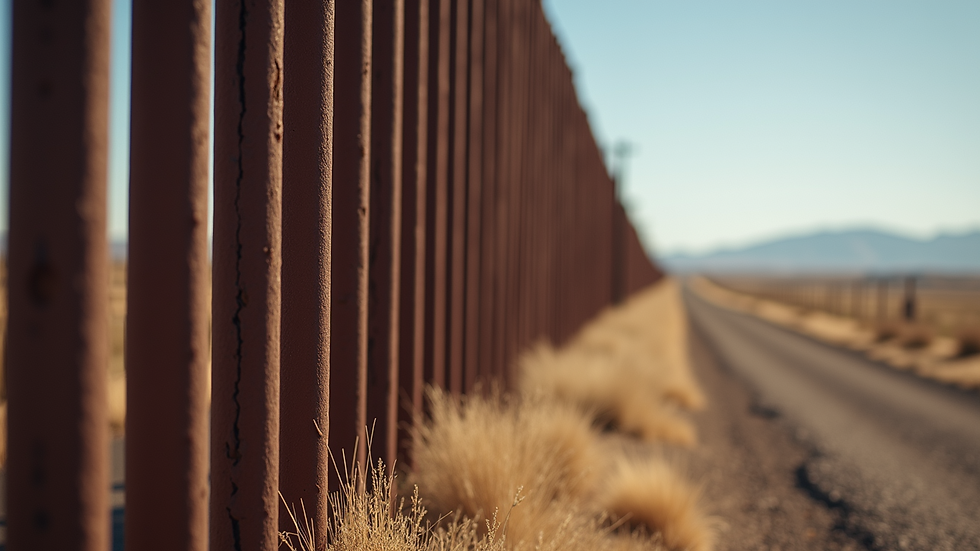Exploring the Impact of Trump's Policies on Contemporary American Society
- Lingua Nova Trade
- Jul 21
- 3 min read
Donald Trump’s presidency from 2017 to 2021 was a catalyst for profound changes in American society. His policies, spanning immigration and economic strategies, sparked passionate reactions and reshaped public discussions across various sectors. Understanding the influence of these policies allows us to grasp both their immediate effects during his term and their long-lasting impact on today's political and social landscape.
Economic Policies and Their Ramifications
A cornerstone of Trump's leadership was the Tax Cuts and Jobs Act of 2017. This legislation aimed to lower the corporate tax rate from 35% to 21%, hoping to stimulate economic growth and create jobs. While proponents argue that these tax cuts led to a robust economic environment—prior to the COVID-19 pandemic, the unemployment rate dropped to 3.5% in February 2020—critics assert that the benefits largely accrued to the wealthy.
In fact, a report by the Congressional Budget Office indicated that roughly 83% of the tax cuts went to the top 1% of earners. Many Americans felt the impact of these policies differently, sparking intense conversations around economic equity.
Current political debates reflect ongoing concerns about wealth disparity, with calls for reforms that would address the growing gap between the rich and the poor. These discussions are crucial as many Americans continue to feel the effects of this wealth distribution, impacting their quality of life and economic opportunities.

Immigration: A Divisive Policy Area
Trump’s approach to immigration ignited fierce debates and became a defining feature of his presidency. His policies included heightened border control, such as the construction of the border wall and the travel ban that affected several predominantly Muslim countries.
Supporters praised these initiatives as necessary for national security, claiming they protected American jobs and reduced illegal immigration. However, many critics argued that these measures were discriminatory. Reports indicated that immigrant apprehensions dropped by nearly 70% in 2019, suggesting a short-term impact on illegal crossings, yet community sentiments towards immigrants soured considerably, leading to social fragmentation.
The shifts in policies led to significant changes in demographic patterns and community relations across the country. For example, cities with large immigrant populations saw heightened tension and altercations. Long-term, these policies have instigated conversations about human rights and social justice that continue to resonate as people advocate for more inclusive and humane immigration laws.

Social and Cultural Issues
Trump’s presidency coincided with a marked rise in cultural polarization, often magnified through social media. His communication style, characterized by directness and sometimes unconventional rhetoric, exacerbated existing tensions around pressing social issues, including race relations and gender equality.
The Black Lives Matter movement gained significant traction during this period, as activists sought to address systemic racism and police violence. For instance, following the high-profile killing of George Floyd in May 2020, protests erupted nationwide, highlighting a growing demand for justice. Trump's responses to these movements were often contentious, with many feeling that they intensified divides rather than fostering dialogue.
As a result, contemporary society faces a complex web of cultural issues. Many individuals now grapple with topics related to identity, representation, and justice—all significantly influenced by the approaches taken during these past years in leadership.

The Role of Media and Misinformation
The Trump administration raised pivotal questions about the relationship between media and public opinion. His frequent rebukes of established media outlets, calling them "fake news," fostered skepticism and prompted many to question the reliability of traditional news sources. This climate precipitated a fragmentation of information, where various narratives began to compete for audience attention.
The consequences were significant. A survey by the Pew Research Center showed that 53% of Americans reported being confused about what news sources they could trust. This environment of uncertainty and misinformation has affected how effectively individuals engage with vital issues such as the COVID-19 pandemic, climate change, and election integrity.
Navigating this landscape requires a critical understanding of media consumption, emphasizing the importance of evaluating sources and verifying information in an era rich with diverse narratives.
Reflecting on the Legacy of Trump’s Policies
Examining the impact of Trump’s policies reveals a landscape reshaped by multifaceted political, social, and economic challenges. From tax reforms to immigration strategies and evolving cultural conversations, the effects are substantial and ongoing.
As America moves forward, acknowledging these complexities is essential for fostering informed dialogues. The policies and their consequences from those years continue to influence discussions about governance, equality, and civic engagement. The need for thoughtful participation in these conversations has never been greater as society seeks paths toward a more inclusive and transparent future.



Comments